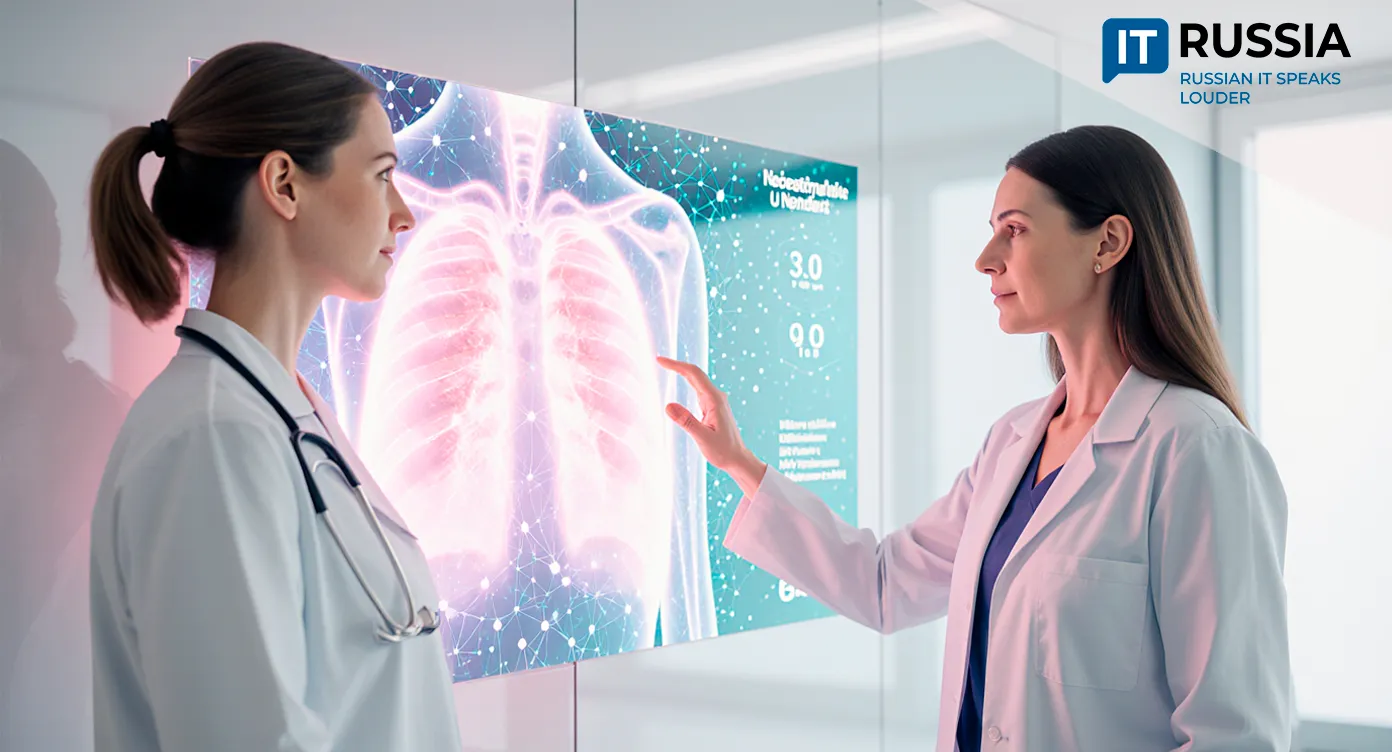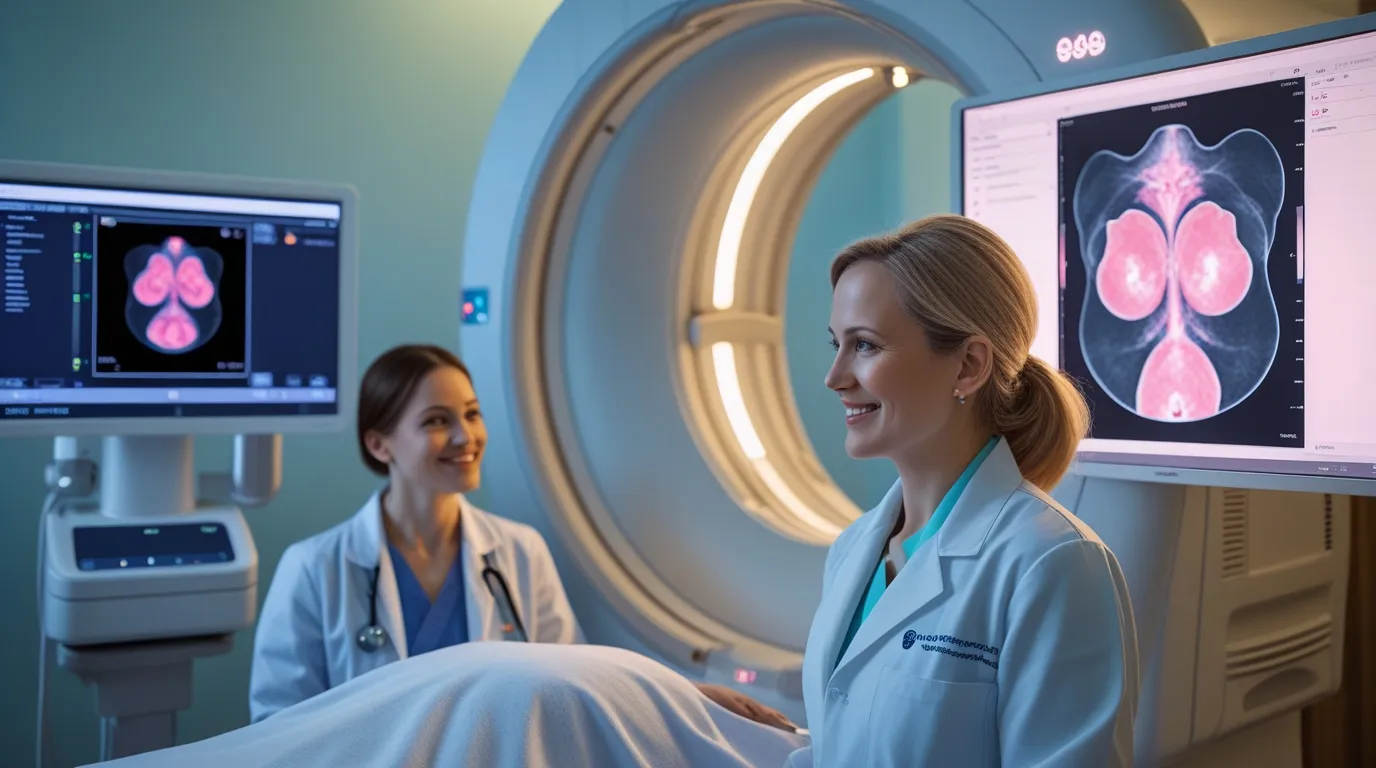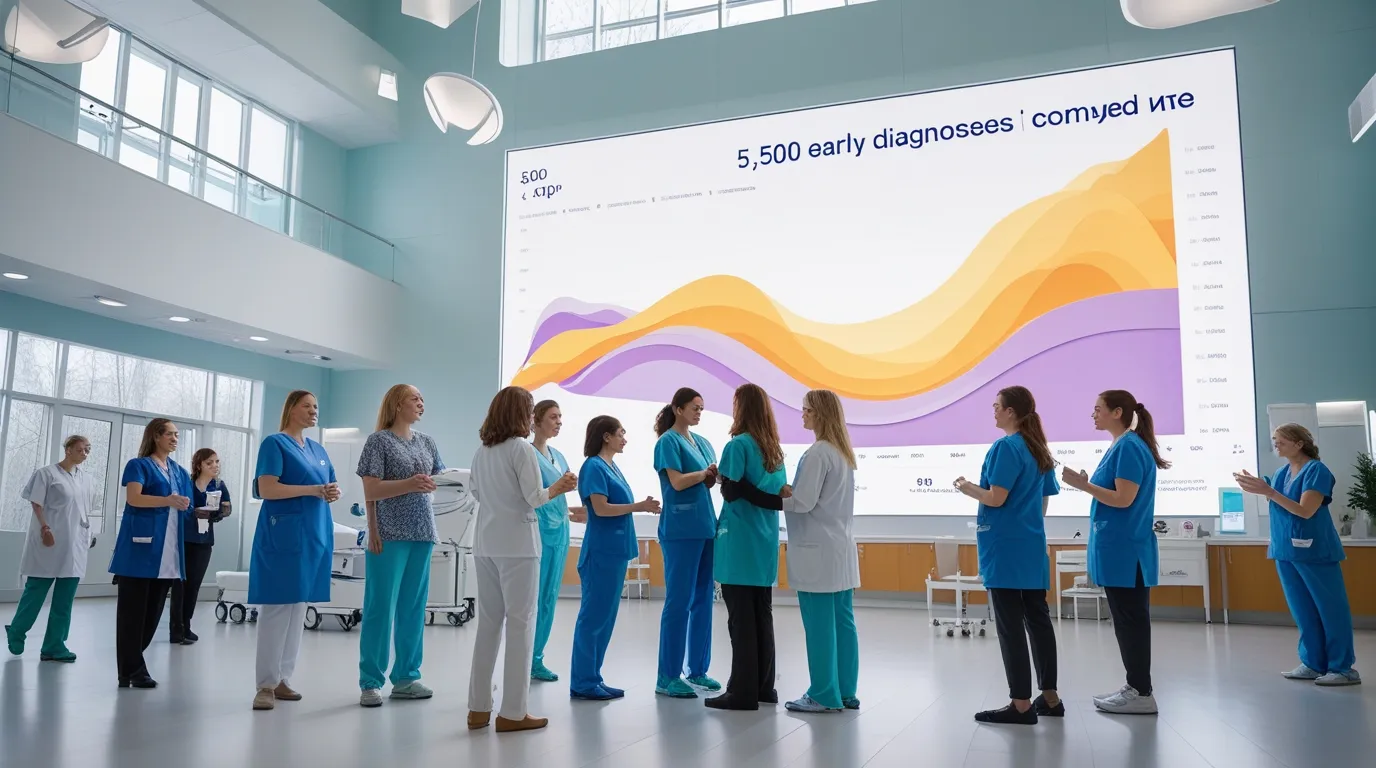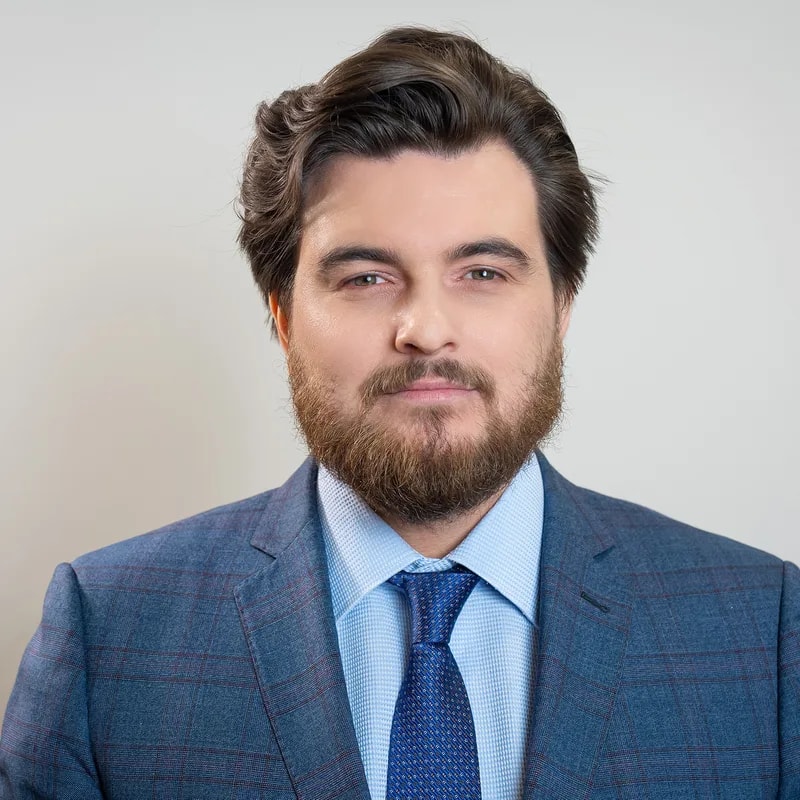Code Against Cancer: How Russian Health Tech Is Saving Women's Lives
Breast cancer is no longer a death sentence — if detected early. On World Breast Cancer Awareness Day, October 15, Russia highlights how cutting-edge digital technologies and artificial intelligence are transforming women’s healthcare and early cancer detection.

Early Detection, Better Outcomes
Since the start of 2025, more than 5,500 women in Moscow have been diagnosed with early-stage breast cancer — a figure that represents lives saved and families preserved. This success stems from the city’s strategic investment in digital health infrastructure and artificial intelligence (AI)–powered diagnostics. The number of women undergoing preventive mammography has more than doubled since 2021, thanks to the expansion of the Women’s Health Centers network and the deep integration of AI into the diagnostic process.
Every day, over 280 digital mammography units in Moscow’s healthcare institutions generate vast amounts of imaging data.

These scans are automatically uploaded to the Unified Radiological Information Service (URIS) within the city’s EMIAS system. A neural network developed and trained by Russian specialists performs a primary analysis, identifying suspicious areas and assessing risks. Its assessment is then reviewed by a radiologist from the Moscow Reference Center for Diagnostic Imaging, who delivers the final report.
This “dual reading” system, officially in use since 2023, is a powerful example of collaboration between Russian IT experts and healthcare professionals to create world-class solutions.
AI’s Role in Smarter, More Sustainable Healthcare
Behind this success lies systemic work with far-reaching implications. For citizens, it means earlier diagnoses and higher survival rates. For thousands of women, it means less invasive treatments and improved quality of life. As Moscow’s Deputy Mayor Anastasia Rakova noted, “An early diagnosis and timely treatment offer a real chance at a long and happy life.” Here, AI serves not as a cold algorithm, but as a guarantor of that chance.
Integrating AI into radiology is not only about improving diagnostic accuracy; it’s also about optimizing resources. By handling the routine first-pass analysis, AI significantly reduces the workload on radiologists, allowing them to focus on complex cases. This minimizes burnout and increases overall system throughput. Economically, early detection is far less costly than treating advanced cancer — making AI-driven screening a strategic investment that saves both lives and budgets.
Moscow’s experience demonstrates that Russia’s AI technologies are not theoretical, but practical and effective in addressing critical healthcare challenges. This program showcases the maturity of the Russian IT sector, capable of developing large-scale, citywide health systems that rival global benchmarks.

Russia in the Global AI Health Landscape
Globally, the use of AI in cancer diagnostics is rapidly expanding. Studies published in "Nature" and the "European Journal of Radiology" have shown that “radiologist + AI” combinations perform as well as, or even better than, traditional double reading by two physicians. Russia’s approach fits seamlessly into this global movement — and adds something unique: experience in scaling AI diagnostics across a megacity of over 12 million people.
According to the Federal Compulsory Medical Insurance Fund (FOMS), more than 600,000 AI-assisted imaging studies were conducted across Russia in the first half of 2024 alone. Pilot programs — including image quality control systems at the Siberian State Medical University and AI-powered diagnostic tools in St. Petersburg — prove that this effort extends well beyond Moscow. The resulting national dataset offers valuable real-world clinical insights for the global medical community.

From Saving Lives to Exporting Technology
The success of Moscow’s breast cancer detection program opens new strategic opportunities. The integrated “URIS + AI + dual reading” system is a ready-to-deploy hardware-software solution that can be adapted not only across Russia, but also for countries with developing healthcare infrastructure. This positions Russia’s digital health ecosystem for export — a move that elevates its technology sector from general software development to specialized, life-saving medical systems.
The program also fuels growth in related fields such as data science, machine learning, and cybersecurity for patient data protection. It creates a self-sustaining innovation loop where healthcare demand drives IT advancement, strengthening technological independence and resilience.
With accumulated experience and vast clinical data, Russia is poised to help shape international standards for AI in healthcare — an achievement that goes beyond national pride to meaningful global impact.










































